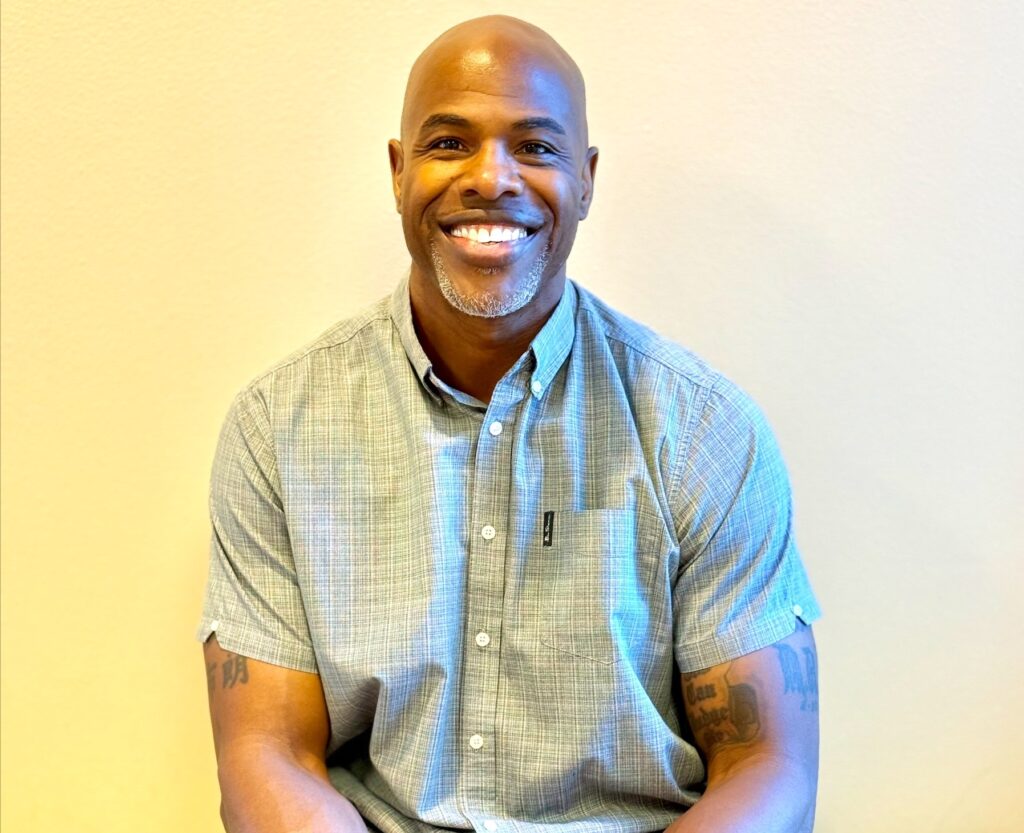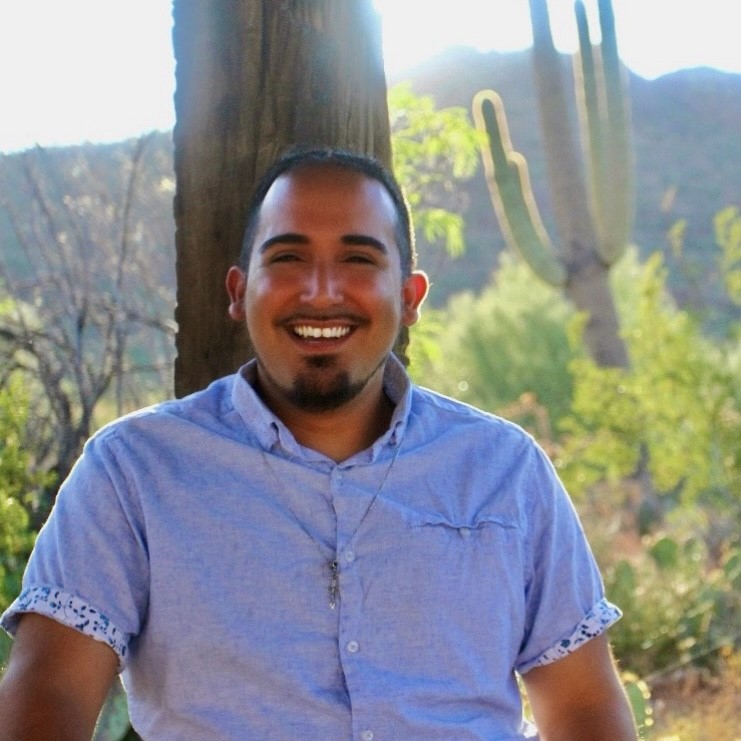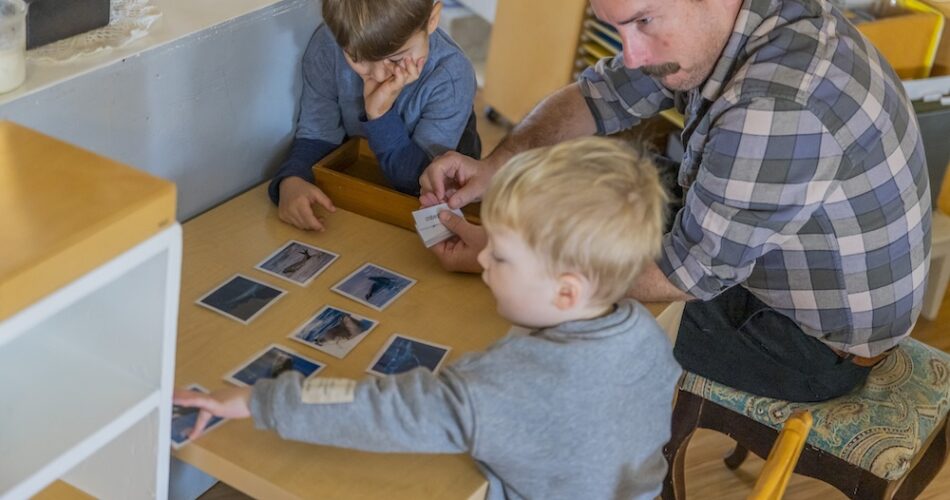Have you ever been to an early childhood education (ECE) training, conference, or college course and wondered, “Where are all the men?” Or met someone who never thought about working in ECE because they’ve never seen a man in the field?
Children benefit from diverse classrooms— in language, culture, ability, age and gender.
Research shows that having both men and women on teaching teams in ECE settings helps children learn. We want the best educators, no matter their gender. But right now, men are underrepresented. In Arizona, only about 6% of early educators are men.
We spoke with five men working in Arizona’s early education field. They shared their stories, challenges and advice.
Why Men Choose Early Education
People enter ECE for many reasons—some personal, some professional.
Bill Berk and his wife moved from K–12 teaching to opening child care centers. “It was the right combination of getting to work with kids, leadership and owning our own business,” he said.
For Abel Alvarado, the decision came from his own childhood: “I was raised up in a dysfunctional family environment without a father’s support. Maybe that is the reason I got interested in working in this field. I realized I could be a male figure and positively affect the kids by making them feel protected at school.”
What Men Bring to the Classroom
The men we talked to didn’t say they bring more to the role than women, but they agreed that male educators bring something valuable, too.
Mychal Lineses shared:
“First off, let’s crush the myth that nurturing is ‘just for women.’ Men bring energy, playfulness, a different style of problem-solving, and often, a sense of goofy fun that balances beautifully in a classroom. We also show kids—especially boys—that caregiving, gentleness, and emotional intelligence aren’t gendered. They’re human.”
Bill Berk added:
“When any good teacher walks in the room, children are super excited. I’ve also noticed that when a man walks into the room, and children learn he is going to be their teacher every day, you see children become attached very quickly and their faces light up. I speculate that the reason is because it is unusual, they don’t see men very often in ECE classrooms.”
Challenges Men May Face in ECE
Some men, like Michael Brown and Bill Berk, say they hadn’t faced major challenges—possibly because of their leadership roles. But others shared common struggles.
One big challenge: being one of the few.
“It is hard not to notice the persistent lack of male representation in the classroom, which is in no fault of their own,” said John Matanza.
Alvarado pointed to cultural beliefs: “The ones who place [these barriers] could be us, considering or thinking culturally that these kinds of jobs are for women only, and it is totally wrong.”
Some men also said they face more scrutiny. Matanza shared:
“I was aware of this notion prior to entering this field that men working with younger children can sometimes face unwarranted suspicion regarding child safety. I always felt that my interactions were constantly watched or misinterpreted, even though that might not be the case. It was not until I started building relationships with the children and families that I felt acceptance and could be truly at ease. It is something I hope to see change for any men deciding to get into the field of Early Childhood Education.”
Mychal Lineses had similar experiences:
“Parents sometimes questioned if I was ‘qualified’ to nurture toddlers. I’ve been asked awkward questions, side-eyed during diaper duty, and left out of certain team dynamics. But I didn’t let that shake me. I stayed rooted in my purpose—and proved through action that being male doesn’t make me less of an educator. It makes me a valuable perspective in the mix.”
How to Support Men in the Field
1. Hire with intention.
Some leaders still hesitate to hire men. “It would help if we are intentional about our discussions about men and women working in this field. I know there are leaders who would never consider hiring a man. That needs to change.” said Bill Berk.
2. Advocate for higher wages for all early childhood educators.
Low wages keep both men and women from entering the field. Bill Berk also shared: “In my experience, and what I have seen is that men are less likely to be willing to work for the wages we are able to offer than women are. Men are less likely to take a wage that they are offered. I think we would see a balance in gender if we could pay educators better. This industry is built on the backs of low income, single women. And that isn’t good for the workers who keep this industry alive.”
3. Provide support and mentorship.
“Support men who work in ECE. Help them grow,” said Michael Brown.
4. Use clear, fair policies.
Having clear rules, especially around supervision, diapering and restroom help, helps everyone feel safer.
Bill Berk suggested policies that apply to all teachers, for example: “I know if I were changing a child’s diaper, or if they had to use the restroom, I would be standing at the door so the other teacher could see me, and only go in [to the restroom] for short periods when the child needed help.”
He added, “I believe the more you can keep two adults in the classroom the better it is for the children and the adults. The more professional development we can provide teachers so that they are interacting with children in a calm, collected fashion, the better. This is good for teachers and children.”
5. Show representation.
Lineses said it’s about more than hiring the “token guy.”: “Hire male staff—and not just for ‘rough-and-tumble’ play. Let us lead curriculum meetings. Offer mentorship programs. Make sure training materials show men as competent, warm caregivers. And most of all? Foster a culture that celebrates diversity in all forms—including gender diversity in your staff. It’s not about having a ‘token guy.’ It’s about building a team that reflects the beautifully diverse world our kids live in.”
Advice for Men Thinking About ECE
Here’s what these educators would say to men considering the profession:
Bill Berk: “I would say to anyone who wants to work in ECE there is no other profession where you can make as big of an impact as when you work with young children.”
Abel Alvarado: “Please do not think twice if you as a male get in front of an opportunity like being part of a child’s development and education. Kids are our future and it’s in our hands.”
John Matanza: “If you want to make a real difference, shape the future and the mind of young learners, and experience profound rewards, this is the field for you. As men, you have a unique and important role to play as role models, especially for young boys.”
Michael Brown: “I would encourage men to get involved in the ECE profession. The profession needs more males. I believe that young boys need positive male role models at an early age. Those positive relationships can help to shape the development of boys into men.”
Mychal Lineses: “Jump in. Don’t wait. If your heart’s in it, there is so much room for you here. You will be questioned—but let your work speak louder. Be professional, stay open, and connect with children authentically. Also—find your people! Build a network of educators who support you and challenge you to grow.”
Abelino “Mr. Abel” Alvarado
Family Health Specialist
Cocopah Head Start


Bill Berk
CEO
Small Miracles Education
Michael Brown
Site Director
Fort McDowell Yavapai Nation


Mychal Lineses
Co-Director
Little Ranch Preschool
John Matanza
Education Specialist
Tohono O’odham Nation Head Start

Resources to explore
- Building a Gender-Balanced Workforce: Supporting Male Teachers (NAEYC)
- Men in ECE (World Forum Foundation)
- Male Early Child Care Professionals Matter (Bananas)
References
Arizona Early Childhood Workforce Registry. (2025, May 21). https://azregistry.org/
Besnard, T., & Letarte, M.J. (2017). Effect of male and female early childhood education teacher’s educational practices on children’s social adaptation. Journal of Research in Childhood Education, 31(3), 453–464. https://doi.org/10.1080/02568543.2017.1319445
Let’s keep the Conversation Going
How does your program support gender diversity in hiring? How do the men on your team make your environment better? Share your thoughts below and help inspire others.
